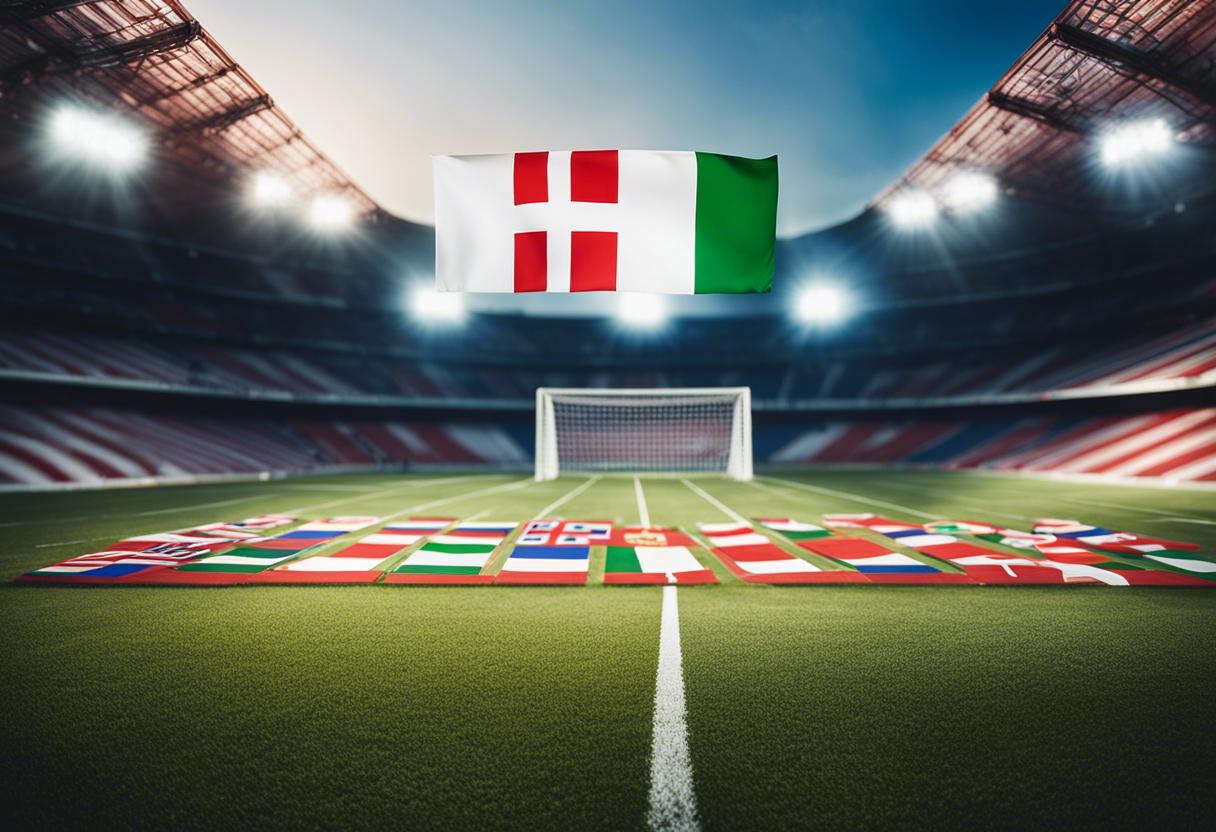Group B: Draw between Croatia and Italy at 1-1
In the Euro 2024 tournament, Italy clinched their spot in the second round after a remarkable equaliser from Mattia Zaccagni against Croatia in Leipzig during the fourth minute of injury time. Croatia had established a lead with Luka Modric’s goal in the 55th minute, turning the remaining thirty minutes into a lively and somewhat premature party for the Croatians.
The Italians hadn’t shown any particularly promising offense in the second half until the moment when centre-back Riccardo Calafiori moved forward, delivering a pass to Zaccagni. Unexpectedly left unmarked while positioned on the left side of the penalty area, Zaccagni, a forward from Lazio who had only spent 10 minutes on the pitch, skillfully rolled the ball into the net, bypassing Dominik Livakovic and the far post. This led to a euphoric outbreak among the Italian fans who seemed to have lost all hope until that point.
Without the last-minute equaliser, Italy would have likely been edged out of the competition if they were unable to secure a spot as one of the superior third-place teams. Conversely, a draw left Croatia in a bad spot, having only earned a single point from the first two matches. This was a repeat performance with a 94th minute goal conceded for the second consecutive game; this outcome all but confirmed Croatia’s upcoming elimination. The only glimmer of hope for Croatia to advance is if England is able to rout Slovenia with a minimum four-goal spread and other match outcomes also favour Croatia. However, if this does mark the end of Luka Modric’s international career, it can be described as most unfortunate.
Both Croatia and Italy had suffered defeats against Spain, who had firmly taken control of the group. But Italy’s narrow 1-0 loss had resulted in intense introspection at the national level. Despite a unanimous agreement over a tough defeat for Italy, analysts were divided on what caused it.
Ex-Inter coach Andrea Stramaccioni accused Luciano Spalletti of poor decision-making, particularly removing Federico Chiesa from the game, which he saw as “a significant regression, [indicative of a] real failure of the Spalletti project.”
Meanwhile, Fabio Capello held a broader view and criticised the entire Italian football system in comparison to the Spanish. He faulted the lack of emphasis on quality in Italy’s approach to soccer: “We are no longer nurturing quality….the youth programs prioritise tactics but overlook technique.”
The 1982 World Cup victor, Beppe Bergomi, criticised Italy’s failure to embrace their time-honoured football approach during their recent match, attributing this as the reason for their loss. He recommended that acknowledging Spain’s superiority and adopting the defensive tactic, catenaccio could have altered the game’s dynamics. Bergomi underlined this by stating Italy’s overconfidence and insufficient struggle.
Furthermore, Arrigo Sacchi’s communication conveyed an anthropological angle. Italy, unlike a well-structured team, seemed disorientated on the field. The Italian tendency to prioritise individualism instead of team alignment, he suggested, led to confusion and intimidation. This lack of co-ordination caused them to be ill-equipped when combating aggressive opponents, resulting in what Sacchi described as ‘total darkness’.
Spalletti, given his inability to alter the player’s cultural or technical capabilities promptly, decided to shift the game strategy. From a 4-3-3 to a 3-5-2 formation, while also swapping players Chiesa, Scamacca, and Frattesi with Raspadori, Retegui, and Darmian.
The rearrangement mainly aimed to bolster Italy’s defensive stance. Their robust midfield successfully stifled Croatia’s advances through the centre. During the initial half of the match, Croatia’s gameplay mainly involved shifting the ball across the field.
However, with a sturdy defence in place, Italy started to display effective offence. Their fervent pressure began pushing Croatia gradually onto the backfoot, resulting in Italy creating potential scoring opportunities.
The highlight of these opportunities was when Barella’s cross left Bastoni with a free header. However, the centre-back, who had scored an equaliser against Albania in the previous match, did not succeed this time. The significant miss led many to question whether this spurred a sense of despondency among the Italian players. Sure enough, ten minutes into the second half, Croatia took advantage of their luck.
In a turn of events, halfway substitute Davide Frattesi’s hand was hit by a ball, courtesy of Kramaric, leading to a penalty awarded to Croatia after verification through VAR. The respected Modric took charge, albeit performing below his classic standard. He attempted an audacious outside-foot pass a minute earlier that was futile as it bounced straight to Donnarumma. Faced with the towering Italian goalie at a 12-yard distance, his low shot intended for the left was expertly blocked by Donnarumma.
Celebrations erupted from the Italians at the farther end of the field, however, the Croatians quickly retained control and initiated a cross from the right. Ante Budemir headed for a goal and despite Donnarumma’s brilliant attempt at a save, the rebound was seized by Modric, who ecstatically thumped the ball into the net’s apex. Croatian supporters rejoiced with spontaneous singing, pyrotechnics and beer showers from the top galleries. The Italian side appeared to get engulfed in darkness as the pendulum of fate swung. With half an hour left to play, it seemed like the final result was an already accepted fact by both sets of fans.
In a backdrop of Croatian dominance, Italy’s strategy seemed futile. Their opponents were content with their lead toying around and killing time. Spalletti introduced Chiesa, his most lethal weapon, but to no avail. Following this, Scamacca joined in to increase aerial threat, in what can be considered a low moment for Italy. When it looked like all hope was lost, Calafiori managed to find Zaccagni. Football is all about possibilities, never succumbing to fatalism. The next match sees Italy face Switzerland in Berlin on Saturday in the second round.

